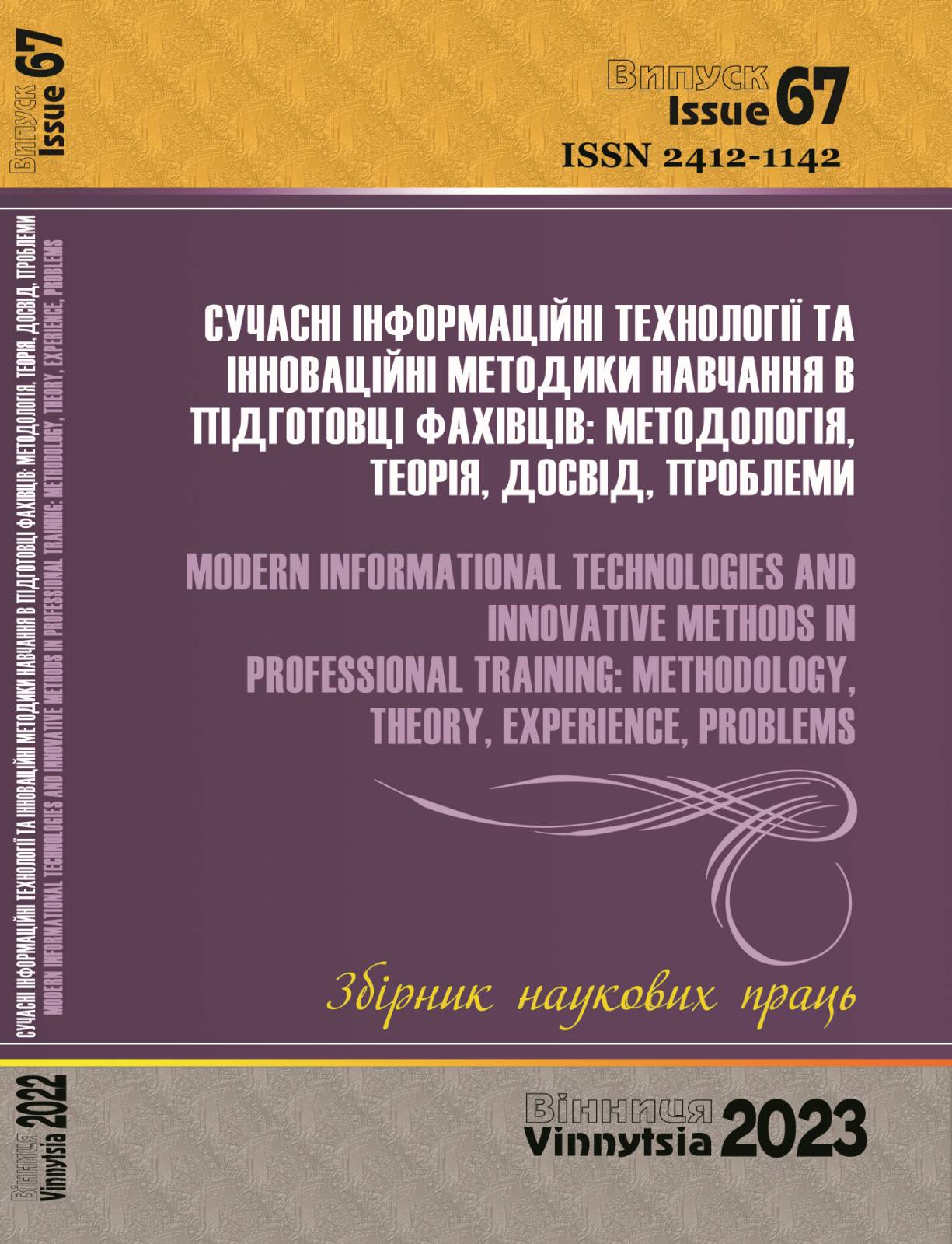PRIMARY CLASS TEACHER TRAINING TO THE MORAL EDUCATION OF YOUNGER SCHOOL STUDENTS
DOI:
https://doi.org/10.31652/2412-1142-2023-67-87-95Keywords:
primary school teacher; younger schoolchildren; moral education, teacher training; higher pedagogical institution of education, readiness for educational workAbstract
The article discusses the issue of training teachers in the process of training in a higher
educational institution to implement the tasks of moral education of students. The authors touch on the
problems of finding effective ways, creating the necessary conditions for the formation of future primary
school teachers' professional readiness for the educational process in general, and the formation of the
foundations of moral culture in children in particular. The authors of the article note that it is of particular
interest to study the specifics of the formation of readiness for pedagogical activity in the system of
training future primary school teachers, because the junior school age is a period of acquiring knowledge
about social behavior, which ensures the adequacy of communication of an individual in society. The
formation of readiness for moral education of students will help the future teacher to effectively use his
psychological and pedagogical knowledge and skills. Under such conditions, the teacher will more
successfully perform functional duties, timely and correctly choose methods, forms and means of
teaching and education. The readiness of a primary school teacher for educational work has its own characteristics, determined by the specificity of the educational process. The article examines the process
of forming the professional readiness of primary school teachers for moral education as a subsystem of
the teacher's general readiness for pedagogical activity. In order to prepare future primary school teachers
for moral education, the authors recommend using different teaching methods, namely: visual (watching
movies, observations, excursions), verbal (lecture, conversation, story, reading fiction, explanations),
practical (exercises and problems situations, laboratory and practical work, experiment, modeling).
Business games, analysis of situations, solving problems-situations (cases), debates and discussions are
effective methods of motivating the activities of future teachers.
Downloads
References
Біда, О. (2005). Удосконалення системи підготовки майбутніх учителів – проблема сьогодення. Львів :
Вісник Львівського ун-ту, (19, Ч. 1), 247-252.
Дубасенюк, О.А., & Семенюк, Т.В., & Антонова, О.Є. (2003). Професійна підготовка майбутнього
вчителя до педагогічної діяльності : Монографія. Житомир : Житомир. держ. пед. ун-т.
Донцов, А. В. (2008). Моральна культура вчителя. Харків : ХНУ імені В. Н. Каразіна.
Дяченко М. Д. (2013). Концептуальні засади розвитку творчого потенціалу майбутніх журналістів як
передумови формування професіоналізму. Педагогіка формування творчої особистості у вищій і
загальноосвітній школах. (29), 513-521.
Капська, А. (2008) Педагогічна компетентність як значущий компонент структури професійної
діяльності соціального працівника. Вісник Чернігівського державного педагогічного університету імені
Т. Г. Шевченка. Чернігів : ЧДПУ, (50), 3-7.
Кіліченко, О. І. (2017). Формування професійної мобільності майбутніх учителів шляхом розв’язування
навчальних ситуацій. Імідж сучасного педагога, (3/1(172), 15-19.
Комарівська, Н. (2011). Можливості морально-етичного виховання молодших школярів засобами
художньої літератури. Наукові записки Вінницького державного педагогічного університету імені
Михайла Коцюбинського. Вінниця: ТОВ НІЛАН ЛТД, (34), 342-346.
Мироненко, Т. П. (2001). Формування громадянської зрілості в майбутніх учителів. (Автореф. дис. канд.
пед. наук). Одеса.
Пащенко, Д. І. (2005). Формування готовності майбутніх учителів початкових класів до гуманістичного
виховання учнів: Монографія. Київ : Науковий світ.
Присяжнюк, Л. А., & Колеснік, К. А., & Карук, І. В., & Король, А. В. Підготовка майбутніх педагогів до
реалізації середовищного підходу до організації освітнього процесу в закладах дошкільної і початкової
освіти в контексті впровадження європейського досвіду. Сучасні інформаційні технології та інноваційні
методики навчання у підготовці фахівців: методологія, теорія, досвід, проблеми. Вінниця : ТОВ «Друк
плюс», 2022, (64), 161-173.
Савченко, О. Я. (2007). Виховний потенціал початкової освіти. Київ : СПД «Цудинович Т.1.».
Хомич, Л. О. (1999). Система психолого-педагогічної підготовки вчителя початкових класів (Автореф.
дис. на здобуття наук. ступеня доктора пед. наук.). Київ.
Яремчук, Н. Я. (2007). Підготовка студентів класичного університету до виховної діяльності у
загальноосвітній школі. Педагогіка і психологія, (8), 20-32.
Downloads
Published
Issue
Section
License
Copyright (c) 2023 Комарівська Надія Олегівнa, Колеснік Катерина Анатоліївна, Казьмірчук Наталя Степанівна, Імбер Вікторія Іванівна

This work is licensed under a Creative Commons Attribution 4.0 International License.





